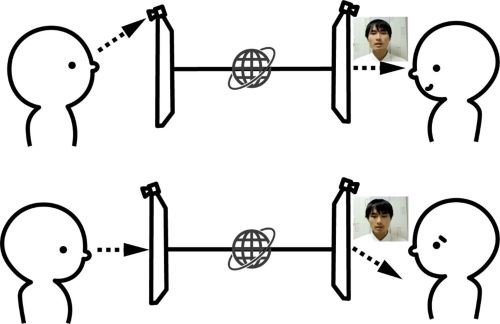Human or AI? You Have the Right to Know the Source of What You're Reading
As Google, Microsoft, OpenAI, and now Apple compete to release and improve AI content creation tools, it is essential for these companies to clearly label AI-generated text. When "Sent from my iPhone" first started appearing below emails, it served a dual purpose: a humblebrag indicating the sender owned a pricey Apple device and a disclaimer that the message might be brief or typo-heavy since it was typed out on a phone.

Figure 1. Human or AI? You Have the Right to Know the Source of What You're Reading.
Those four words subtly introduced the notion that individuals using new technologies should disclose how these technologies impact the content they create. While "Sent from my iPhone" may now seem outdated, the surge of AI-generated text on the web calls for a modern equivalent. A straightforward "Created with ChatGPT" or "Edited by Apple Intelligence" could suffice. Without such disclosures, the web risks losing the remaining vestiges of authenticity. Figure 1. Shows human or ai? you have the right to know the source of what you're reading.
AI writing assistants are not a new phenomenon, but last week, Apple announced plans to integrate them across its devices with Apple Intelligence's Writing Tools. A small Rewrite icon will appear next to every text field on the iPhone, iPad, and Mac, offering suggestions to write more clearly and concisely or adjust the tone to be more “friendly” or “formal.” According to Apple, the goal is to "help users feel more confident in their writing [and] deliver the right words to meet the occasion."
Unsure what to say in the first place? A ChatGPT integration can write the entire email for you. These features are only supported by the latest Apple products. To try them out this year, you'll need an iPhone 15 Pro, Pro Max, or presumably an iPhone 16, as well as an M1 iPad or Mac. However, as the upgrade cycle progresses, Apple Intelligence is expected to expand its reach.
As a result, that friend who used to misspell words or speak in fragments might start sending you publication-worthy paragraphs. Or your romantically challenged significant other might send Casanova-level texts crafted by ChatGPT, like a South Park episode brought to life. An online business that claims to be local, with a blog about community events to support this claim, could actually be run by someone thousands of miles away who uses AI to write all the content.
Google and Microsoft offer their own versions of Apple's Writing Tools. Microsoft's Copilot Pro can help you write, edit, and analyze content in Microsoft Office, while Google's AI can generate text for you in Google Docs, Gmail, and more. If these companies succeed, it might become impossible to discern whether the messages we receive from friends, family, and coworkers have been manipulated by AI.
I’ll admit, these writing assistants sound quite helpful. Not everyone is a skilled writer, and many will appreciate the ability to polish their text with the push of a Rewrite button. However, there is a downside: people might misrepresent their abilities or use these tools to cheat. Naturally, Silicon Valley highlights more positive examples, such as using the tools to create personalized bedtime stories for children.[1]
However, widespread use of AI-based writing can also undermine productivity. Forget today's typos and autocorrect slip-ups—AI could introduce errors on a much larger scale if the human behind the keyboard doesn't thoroughly review its output. Even Apple CEO Tim Cook acknowledges that Apple Intelligence can hallucinate, just like other AI systems.
Beyond productivity, this raises ethical questions for AI. Is it deceptive to send AI-generated communication without disclosing it? In sensitive conversations, the recipient may want to know, yet there are no established norms for disclosure. Even more concerning—what if the AI selects offensive words or phrases from its vast and often ambiguous training data?
Disclaimers on AI-generated content might seem like a temporary fix. Even "Sent from my iPhone" could be removed or altered to say something entirely different. However, in 2024, a similar measure is necessary until we better understand how AI models operate and develop a shared understanding of how to use them responsibly.
Reference:
- https://www.pcmag.com/opinions/human-or-ai-you-deserve-to-know-where-what-youre-reading-comes-from
Cite this article:
Gokila G (2024), Human or AI? You Have the Right to Know the Source of What You're Reading, AnaTechMaz, pp. 267















